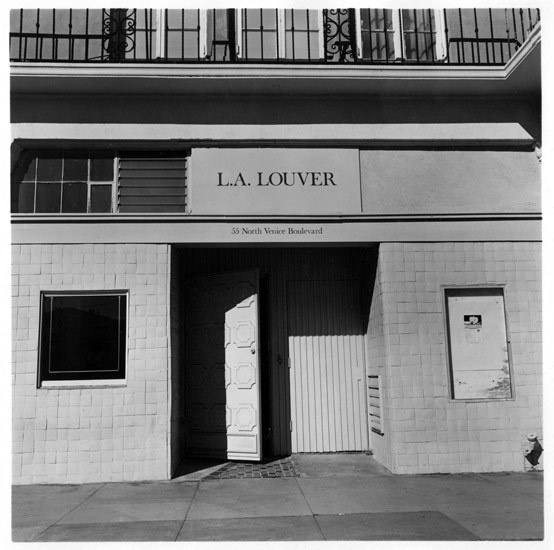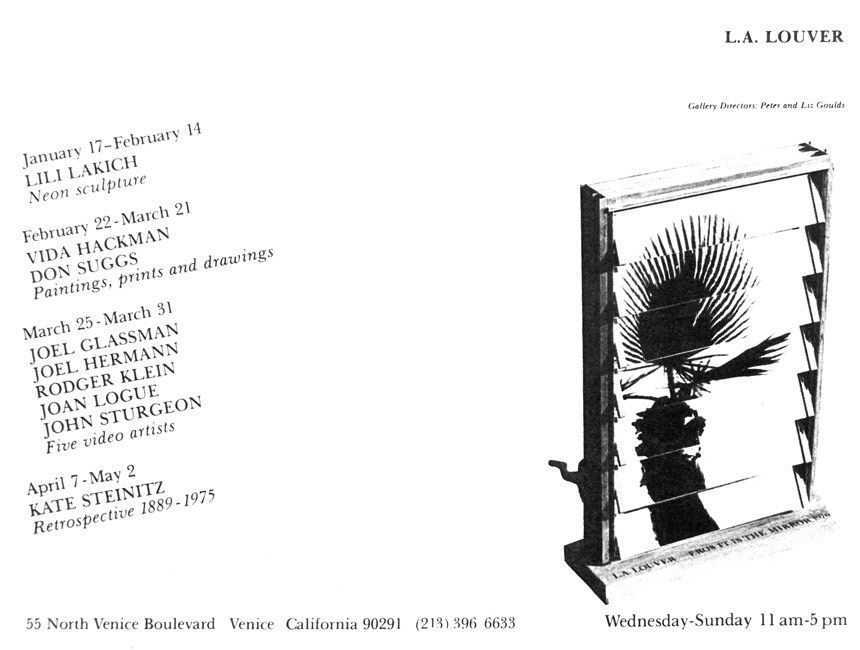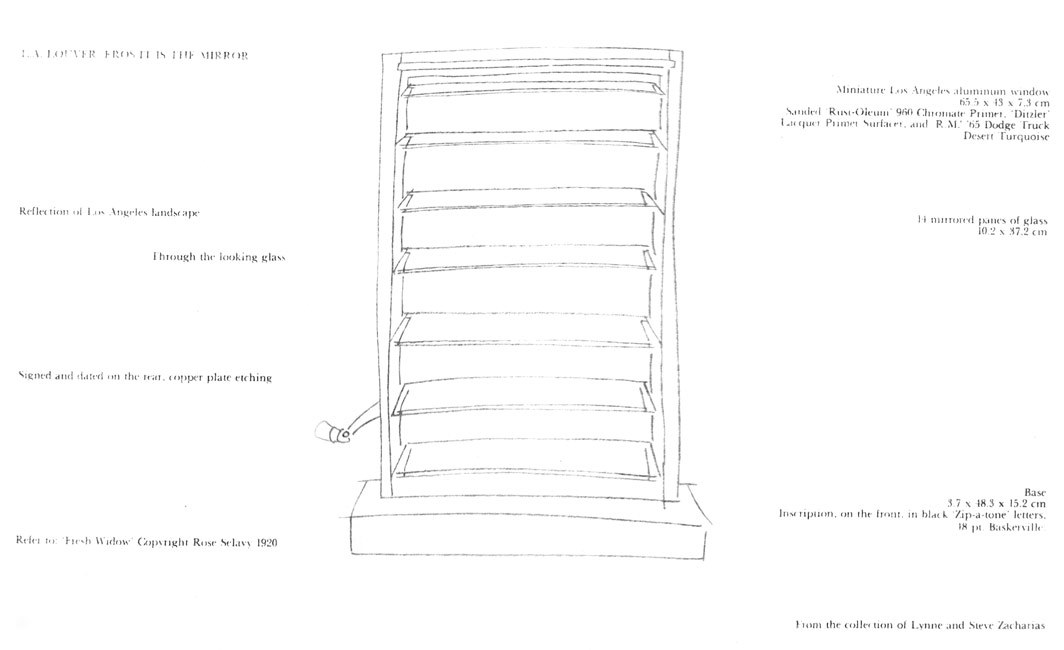


The story behind what inspired the name L.A. Louver and the gallery’s original 1976 logo as told by Peter Goulds:
“A Rose by any other name Peter Goulds on L.A. Louver”
In 1920, Marcel Duchamp made a miniature French window and called it Fresh Widow — bad pun, right? It was made by a French window maker, sits on a baseboard, and has panes of leather rather than glass. The act of cleaning the window is actually one of polishing, so it shines.
In my apartment at UCLA every single window was a louvered window, and coming from England as I do, I’d never seen a louvered window in my life. They have them, of course — I’d just never seen one. If you look at the device that opens the window, it looks like the coffee grinder in Duchamp’s The Bride Stripped Bare by Her Bachelors.
In 1931, André Breton (the surrealist poet and critic) wrote an article called “The Lighthouse of the Bride.” Evidently (from the article) Duchamp had given Breton his notes of the making of and thinking behind The Bride Stripped Bare by her Bachelors and Breton took these notes and ciphered the painting. Duchamp had previously given no information of what the painting was about, gives this critic his notes for the first time, and this man reads all the notes diligently and writes an essay about the true meaning of the painting. The first paragraph says — and I’m paraphrasing — that Duchamp invites us on a journey through the artistic looking glass and he goes on to explicate the meaning of the painting.
So my miniature Los Angeles window doesn’t have leather and doesn’t have glass but it has mirrors. So, when it’s closed you see your own reflection but when you ratchet the coffee grinder — via the reflection of the outside world in the mirrors — you journey through the artistic looking glass.
Duchamp’s baseboard reads (and it’s the first time he used his female pseudonym), “Fresh Widow, 1920, Rose Sélavy.” My baseboard now reads, “La Louver, 1976, Eros it is the mirror.”
When I opened the gallery my ego was such that I wouldn’t put my name on something that might fail. So, I needed a pseudonym. My wife said, “Why don’t you call it that wretched LA Louver?” It was one of the many props I had made for film projects that were littering the house at the time, and I thought that was a good idea.
Now we’re stuck with it.
Published in Art and Living, 2006 Issue 3
